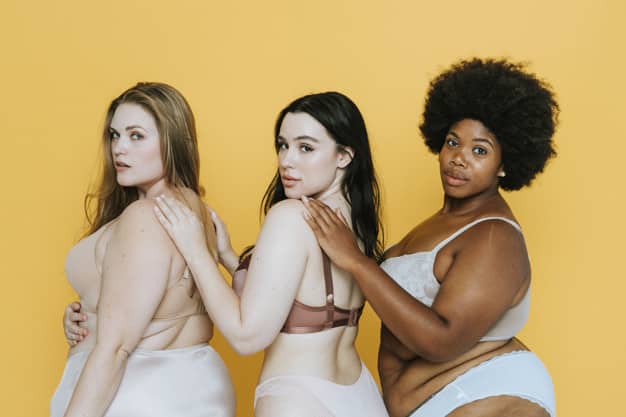- 17 March 2021
- Diong Zoe Yi
Tags: body positivity; self-criticism; counselling Singapore
We live in an era where we are constantly bombarded with society’s ideas of perfection. We are inundated with flawless images of people in flattering poses looking like they are thoroughly enjoying themselves at every moment. Meanwhile, our own lives don’t look quite the same – and, social media tries to sell us various products to achieve similarly perfect looks and styles, seemingly aware of our need to match up.
This pursuit for perfectionism in everyday life, and in particular, in how we look can create a dangerous trap for us to fall into. As we strive to achieve perfection, we become increasingly aware of our own flaws. Research has shown that media exposure of the idealised body affects our self-image negatively (Grabe, Ward & Hyde, 2008).
Body Image Issues and Health
Body image issues affect not just an individual’s physical health, but also mental wellbeing.
The inability or constant pressure to achieve the “perfect” body type can result in individuals experiencing stress, low self-esteem, mood swings, anxiety, depression and poorer quality of life (Brennan, Lalonde, Bain, 2010).
Individuals may find themselves avoiding social interactions, having low confidence or performing poorly in academic or work. They may also obsess over how much they are eating or exercising, leading to the development of unhealthy habits that could cause physical illnesses.
According to Polivy and Herman (2002), “media influence is thought to precipitate EDs (eating disorders) by making women feel dissatisfied with their appearance” (pp.199). Eating disorders can take many forms including anorexia, bulimia and binge-eating.
People across different body sizes, age, genders, ethnicities and income levels are susceptible to eating disorders; although, they are more prevalent in young women. Eating disorders can detrimentally affect one’s physical health, resulting in nutritional deficiencies and damage to vital organs.
Men are not exempted from the pressure of living up to society’s expectations as well. Although the pressure for men is less focused and researched on as compared to women, it has been shown that men experience body dissatisfaction too (Brennan et al., 2010, pp. 131).
Body Positivity
On the other hand, someone who practises body positivity actively accepts, cares for, and loves their own body. Indeed, self-acceptance is essential in encouraging all individuals to accept their own bodies, instead of chasing after society’s idea of perfection.
Someone with a positive body image is more likely to have good physical health because they are more inclined to be physically active and have less negative eating habits. Their mental health would generally be better as they would have a higher self-esteem and are more resilient to negative comments about their bodies. This leads to overall better life satisfaction and more positive moods.
Practising Body Positivity
1.
One way to attempt body positivity is to be aware of your other strengths. Instead of basing your value and self-worth on your appearance, remind yourself that there are many things you are valued for. Maybe you are a good listener, you work hard or that you can play the piano well. Brennan et al. (2010) concluded in their study that “viewing the body as an instrument rather than as an object may promote a healthier body image” (p.136). Hence, validating your body on what it does for you instead of how it looks like may increase well-being. For example, rather than being focused on how big your calves and thighs are, recognize that your legs are strong and take you to places.
2.
It is also important to be more mindful of how you are utilising social media. Don’t fall down the rabbit hole of comparing yourself with the people you see online. Instead of passively engaging with online content, watch out for content that is detrimental to your mental health. If the people you are interacting with do not inspire you but rather cause you to feel more inferior, then it is time to unfollow them.
3.
In addition, understand that what you see online is highly curated. Keep in mind that people tend to post only flattering photos that are often edited.
4.
Lastly, be patient with yourself! It is difficult to unlearn our internalised biases of what is considered attractive. It takes consistent effort to stop comparing ourselves with others. But if we could break free from the shackles of society’s expectation, we would be happier and healthier.
Seek guidance from a counsellor if you require more help to get through a challenging period.

